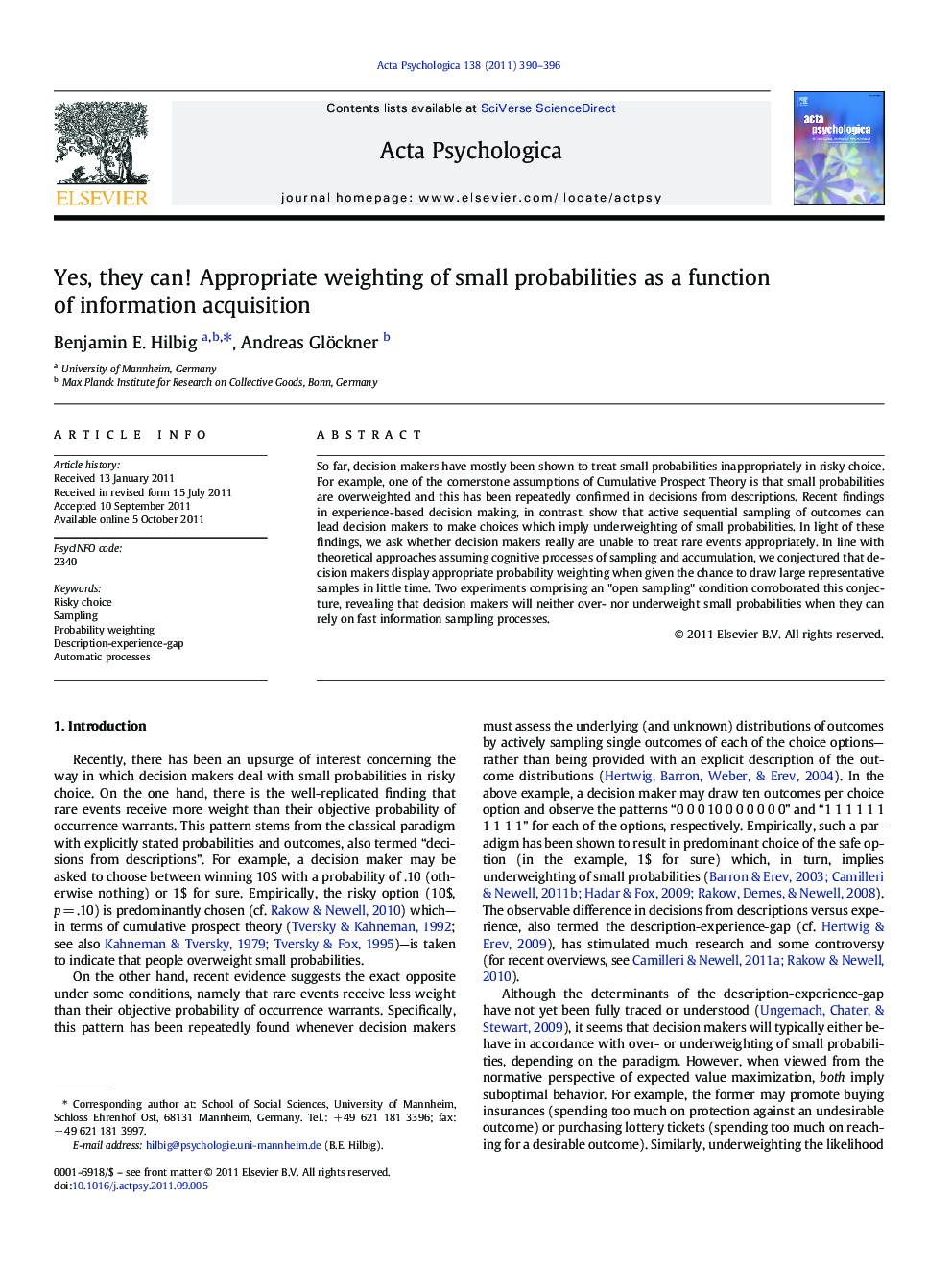| Article ID | Journal | Published Year | Pages | File Type |
|---|---|---|---|---|
| 920046 | Acta Psychologica | 2011 | 7 Pages |
So far, decision makers have mostly been shown to treat small probabilities inappropriately in risky choice. For example, one of the cornerstone assumptions of Cumulative Prospect Theory is that small probabilities are overweighted and this has been repeatedly confirmed in decisions from descriptions. Recent findings in experience-based decision making, in contrast, show that active sequential sampling of outcomes can lead decision makers to make choices which imply underweighting of small probabilities. In light of these findings, we ask whether decision makers really are unable to treat rare events appropriately. In line with theoretical approaches assuming cognitive processes of sampling and accumulation, we conjectured that decision makers display appropriate probability weighting when given the chance to draw large representative samples in little time. Two experiments comprising an "open sampling" condition corroborated this conjecture, revealing that decision makers will neither over- nor underweight small probabilities when they can rely on fast information sampling processes.
► Research in risky choice indicates people do not weight small probabilities appropriately. ► We hypothesize that this depends on information acquisition. ► Two Experiments show appropriate choices when participants are allowed to draw large and representative samples in little time. ► Biases are found to dissolve once people can rely on their “intuitive” capacities.
